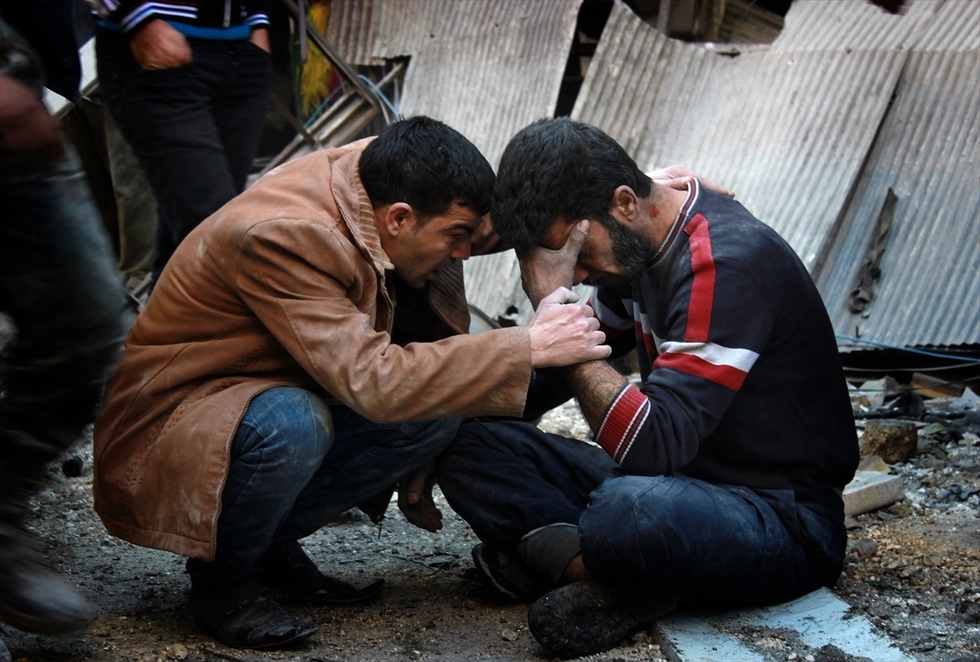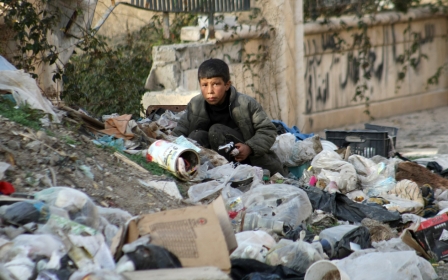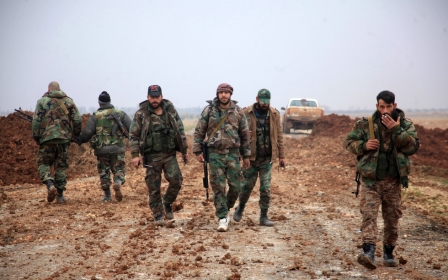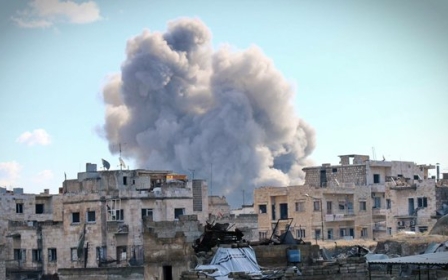More than 1,000 civilians killed in Russia's Syria strikes

Russian bombs have killed more than 1,000 civilians in nearly four months of air raids in Syria, an activist group said on Wednesday.
The raids, which started on 30 September, have killed 1,015 civilians, including more than 200 children, according to the UK-based Syrian Observatory for Human Rights.
The group, which relies on a network of sources in Syria for its reports, said Russian strikes had also killed 893 Islamic State (IS) fighters and 1,141 other opposition militants, including members of al-Qaeda affiliate, al-Nusra Front. The total toll stood at 3,049, including 700 deaths in the last three weeks.
The tally comes as Russia's advances in Syria have thrown next week's talks between the Syrian opposition and the government into serious question.
The talks, due to begin on 25 January in Geneva, are reportedly held up because the countries involved, namely sponsors US and Russia, have yet to agree which opposition groups will be invited.
Russia has called some of the groups on a US-backed list made in an opposition meeting in Saudi Arabia last month "terrorists" and has refused to negotiate with them.
Instead, Moscow wants the inclusion of opposition figures who have remained loyal to President Bashar al-Assad, as well as Kurdish groups fighting IS, the Washington Post reported on Wednesday.
The Saudi-backed opposition coalition on Wednesday said it would accept no such interference as it announced its negotiating team for the Geneva talks.
Mohammed Alloush, a political leader of the Saudi-backed armed group Jaish al-Islam, was announced as chief negotiator by the coalition's general coordinator, Riad Hijab.
Asaad al-Zobi, a general who defected from the Syrian army, will serve under Alloush as head of the delegation, with Syrian National Council chief George Sabra his deputy.
Jaish al-Islam is designated a terrorist organisation by Moscow.
Sabra said that no one had "the right" to object to or interfere with the opposition's choices, and that any attempt to do so would end talks before they began.
Russia: talks to go ahead as planned
Separately Russia's foreign minister said on Wednesday that talks were scheduled to go ahead as planned next week.
"We do not have any kind of thoughts about changing the beginning of the talks from January to February," Sergei Lavrov said after meeting his US counterpart John Kerry in Zurich. "This is the position of Russia and the USA."
"The political process will begin, we hope, in the nearest future, during January. Various dates have been named, but the final decision will be taken by the Secretary-General of the United Nations on the advice and recommendations of his special envoy Staffan de Mistura."
But even beyond struggles over the invite list, Russia's air strikes have helped Assad hold enough ground that it is not clear, as Western governments had once hoped, that he can be removed from power.
“Russia’s strategy is to weaken the Syrian opposition to the point of elimination, so that in the future Russia may well be able to argue that there is no one to negotiate with,” Lina Khatib, a senior research associate at the Arab Reform Initiative, told the Washington Post on Wednesday.
Washington and Syrian opposition activists have accused Moscow of focusing more on opposition fighters than IS, claims Russia has denounced as absurd.
The Observatory says it differentiates between strikes by Russia, US-led coalition warplanes and the Syrian government based on the type of aircraft and the munitions used.
Middle East Eye propose une couverture et une analyse indépendantes et incomparables du Moyen-Orient, de l’Afrique du Nord et d’autres régions du monde. Pour en savoir plus sur la reprise de ce contenu et les frais qui s’appliquent, veuillez remplir ce formulaire [en anglais]. Pour en savoir plus sur MEE, cliquez ici [en anglais].




